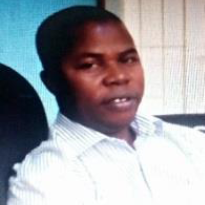
Adeyemo Kolawole Adefemi
Work place: Department of Computer and Mathematics, Nigeria Police Academy, Wudil Kano State Nigeria
E-mail: k.2a.adeyemo@gmail.com
Website: https://orcid.org//0000-0001-7656-9605
Research Interests:
Biography
Adeyemo Kolawole Adefemi, PhD, he is a Senior Lecturer and HOD of the Department of Computer and Mathematics at Nigeria Police Academy, Wudil Kano State, Nigeria. He received his Bachelor's degree B.Sc. Mathematics at the University of Ibadan, received Master's degree M.Sc. Mathematics University of Lagos, and PhD Mathematics at the Federal University of Technology, Minna Niger State Nigeria. He is a member of several prestigious professional organizations, including the Nigerian Mathematical Society (NMS), the Mathematical Association of Nigeria (MAN), and the Nigerian Association of Mathematical Physics (NAMP).
Author Articles
Derivation and Implementation of the Collocation Methods for Solving Single and Multi Time-Fractional Order Differential Equations
By Falade Kazeem Iyanda Muhammad Yusuf Muhammad Taiwo Omotayo Adebayo Adeyemo Kolawole Adefemi
DOI: https://doi.org/10.5815/ijmsc.2025.01.03, Pub. Date: 8 Apr. 2025
Standard collocation (SCM) and perturbed collocation (PCM) are utilized as effective numerical techniques for solving fractional-order differential equations (FODEs) which focus on constructing orthogonal polynomials to serve as basis functions for approximating the solutions to these equations. The approach began by assuming an approximate solution, expressed in the constructed orthogonal polynomials. These assumed solutions were then substituted into the original FODEs. Following this, the problem was converted into a system of algebraic linear equations by collocating the equations at evenly spaced interior points. Numerical examples and the results indicated that the SCM and PCM are easy, efficient, and in good agreement compared with some existing methods and the results presented in the tables and graphs unequivocally demonstrate the efficacy of the proposed methods in solving fractional-order differential equations, yielding solutions of remarkable accuracy. However, the SCM and PCM exhibit comparable accuracy, making it difficult to identify a single superior approach, we conclude that both the proposed methods are effective and viable options for solving fractional order differential equations.
[...] Read more.Other Articles
Subscribe to receive issue release notifications and newsletters from MECS Press journals